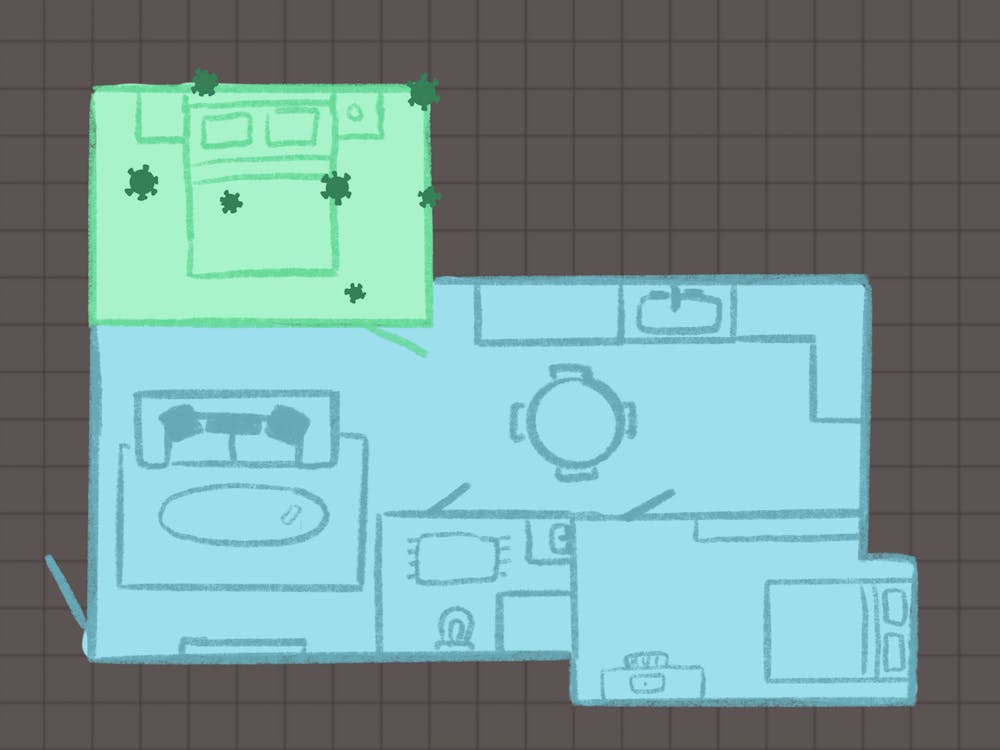Despite attending the Wharton’s “Epidemics, Natural Disasters, and Geopolitics” class on the novel coronavirus, I was nowhere near prepared to see the suffering of someone who had this virus. This personal story is told from the point of view of one of the greatest skeptics of this disease. I am one of those people who supported the opening of the economy at all costs and believed that the strict regulations many countries were taking were absurd.
Not long ago, the coronavirus's presence seemed distant. Even though my country of Ecuador took stringent restrictions and cases rose day after day, the disease did not seem like something in my vicinity. I was more concerned about when I might go to the cinema or the beach again with my friends than if I would get sick or not. I had to wear a mask, but besides that, the coronavirus's effects were not tangible for me.
As a person who relies heavily on statistics, I read that the World Health Organization announced that until March, the percentage of deaths among those infected was approximately 3.49%. I regret very much having thought that this was a small number.
Later, my father got COVID-19, and I saw firsthand how a disease that I considered harmless was gradually weakening my father both physically and emotionally. It is true 40% of those infected do not have symptoms, but what about those that do? All bodies react differently, and because of the newness of the disease, it is difficult to know what exactly would happen if you are the next person to get it.
My father is always characterized by his energetic and active character, dedication to his family, and being a hard worker. He has gotten up every day for the last 20 years at 5:30 a.m. to walk around the rose farms where he works in Ecuador.
We are still unclear as to how exactly he contracted the disease. However, when he did get sick, our lives took a drastic turn. By the time he was infected, my uncle was admitted to the hospital for the same illness. In intensive care, my only uncle did not win the battle against COVID-19 and left us forever at the age of 50.
My uncle, like my father, suffered a lot from the novel coronavirus. He had very high fevers, shortness of breath, and very affected lungs; but I think that what makes COVID-19 such a cruel disease is the isolation to which sick people must undergo. My father received the news that his brother died while he was very ill in his bed. My brothers, my mom, and I could not be there for my father, and we knew that approaching him at any time could be dangerous for our own health. We could not hug him and tell him that everything would get better. We could not be the support and comfort that any human being deserves.
Seeing my father suffer, cry, and fight COVID-19 through a window is undoubtedly one of the most shocking memories I will have to carry with me forever.
RELATED:
Stephanie Yoon | Students returning in fall should take a COVID-19 online orientation
Agatha Advincula | We need to follow Penn’s Student Campus Compact
My father spent more than three weeks in isolation, and he has improved a lot from his high fevers and persistent cough. I now realize that life is fragile and everything can change in one moment. Now, I only ask God to let us share family dinners again. I want to see my father back with the energy he is so well known for, riding his motorcycle and wrapping his arms around me, hugging me. To those reading, I once dismissed the severity of COVID-19, and now I warn you to be careful with your health. COVID-19 does not discriminate.

PEDRO SALTOS MONTENEGRO is a rising Wharton sophomore from Quito, Ecuador studying Finance and Business Analytics. His email address is spedro@wharton.upenn.edu.









